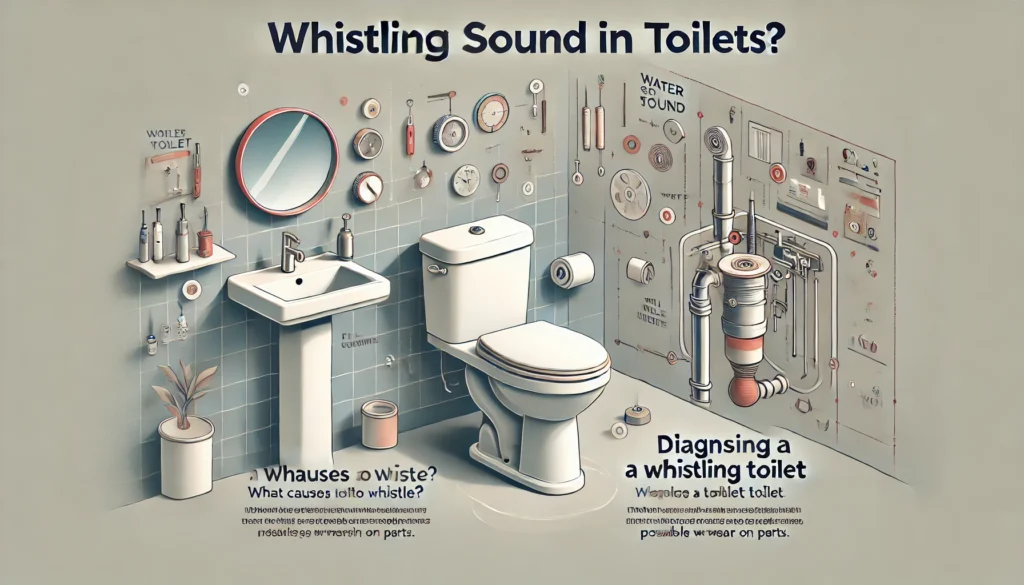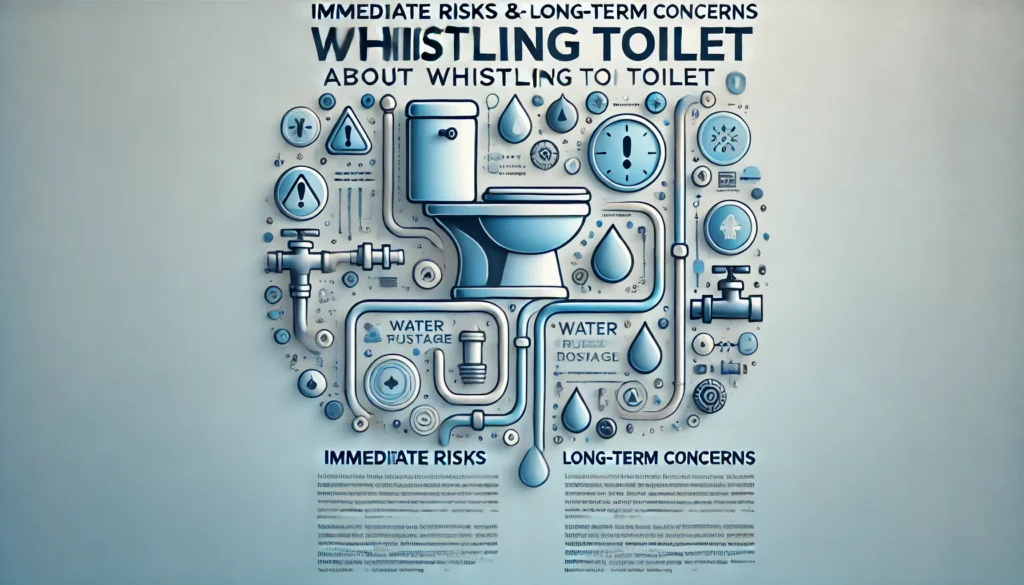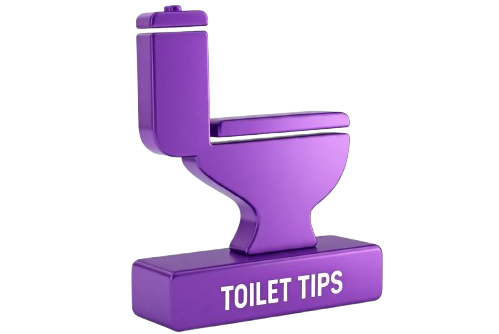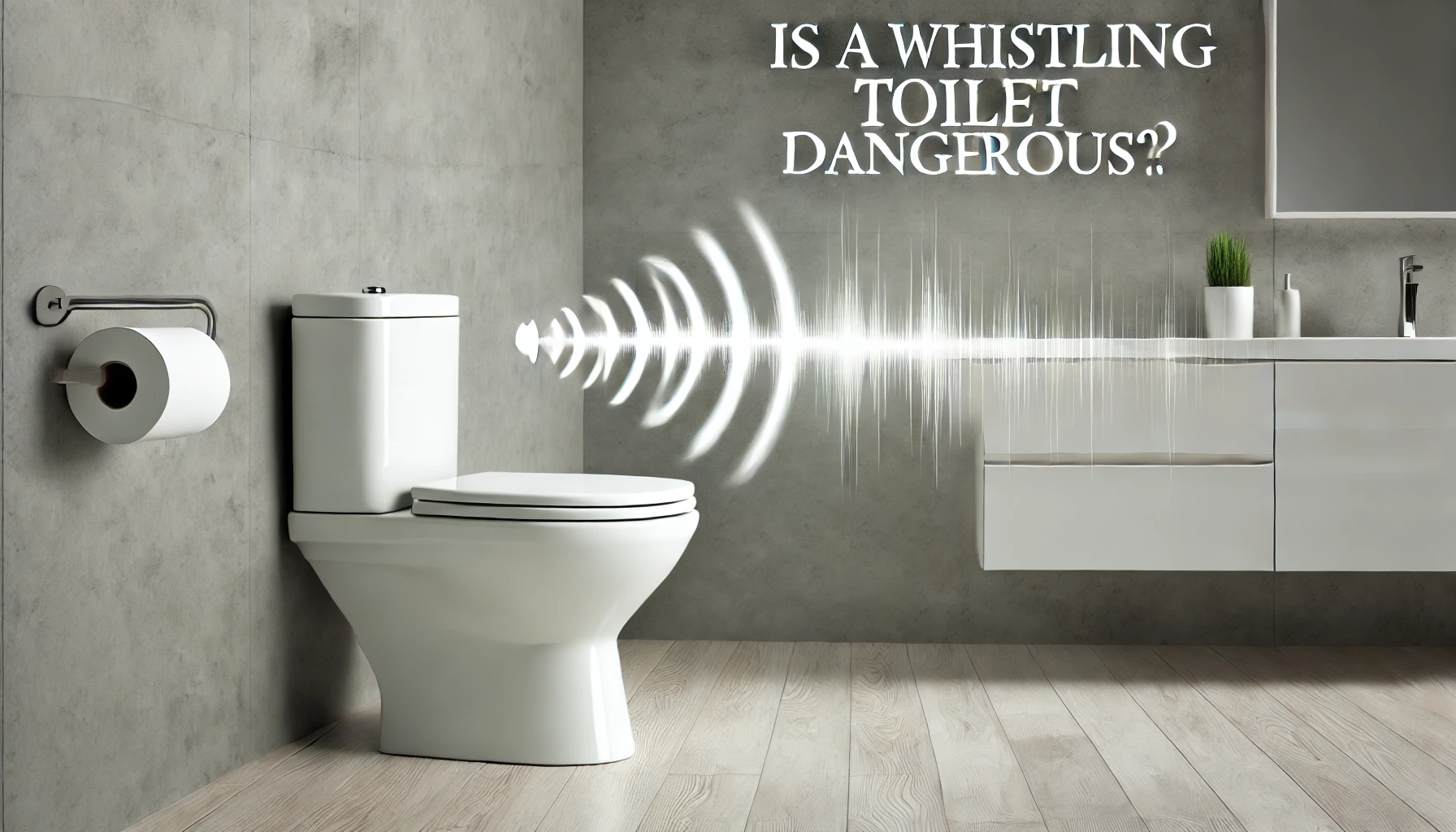A whistling sound emanating from a toilet is not just a minor nuisance; it can also be a symptom of underlying issues with the plumbing system. This article explores the causes of a whistling toilet, the potential risks associated with it, and the steps you can take to diagnose and resolve the problem.
Table of Contents
Understanding the Whistling Sound in Toilets
What Causes a Toilet to Whistle?
A whistling noise often occurs when water flows through restricted or damaged components of your toilet. The filling mechanism is a common culprit, with a worn out fill valve being a frequent offender. The fill valve controls the flow of water into the toilet tank.
If it’s worn or clogged, it can cause a high-pitched sound as the water passes through it. A maladjusted float or improperly adjusted float can also lead to an abnormal water flow rate, contributing to the whistling.
Pressure issues with the water line can be another problem, with high water pressure in your home’s plumbing system forcing water into the toilet mechanisms too rapidly. This can cause the handle to whistle.
Diagnosing a Whistling Toilet
To identify the timing of the noise, listen closely to when the whistling occurs. Does it happen during the fill cycle or immediately after flushing? Pinpointing the timing will help you identify the issue.
Inspect the fill valve for any visible signs of wear or damage. A faulty valve can be a common culprit. If necessary, clean or replace the valve.
Check the water pressure in your home. Use a pressure gauge to measure the water pressure. If the pressure is too high, it can cause whistling and potentially damage your home plumbing fixtures.

Is a Whistling Toilet Dangerous?
Immediate Risks
While a whistling toilet is not dangerous in itself, it should not be ignored. The noise is an indicator of malfunctioning components. If unchecked, it can lead to water wastage, faulty fill valves or floats, continuous water flow, resulting in higher water bills and waste. In severe cases, a malfunctioning fill valve might shut off properly, leading to overflow and potential water damage.
Long-Term Concerns
A persistent whistling toilet can strain your plumbing fixtures and other parts of your home plumbing system. This can lead to significant repairs and potential damage to your water line.

Fixing a Whistling Toilet
If adjusting the float or regulating water pressure doesn’t resolve the whistling, it’s time to consider replacing the fill valve. This straightforward DIY project can often be completed with replacement kits available at hardware stores or online.
However, if you’re uncomfortable with plumbing tasks or if the issue persists, it’s best to consult a professional plumber for a thorough inspection and repair.
Preventive Measures and Regular Maintenance
Regular checks are essential for maintaining your toilet’s internal mechanisms in optimal condition. Inspect them periodically to identify any signs of wear or damage. Listen for any changes in your toilet’s operation to help you catch potential issues early and prevent more serious problems.
Professional inspections by a plumber can perform routine checks on your home’s plumbing system, especially if you live in an older home or have experienced plumbing issues in the past.
Conclusion: Addressing Whistling Toilets Promptly
A whistling toilet is a sign that something needs attention. Addressing this issue promptly can prevent more severe problems in the future, such as leaks or water damage. Regular maintenance and being attentive to changes in your plumbing system’s behavior are key to ensuring a functional and efficient home plumbing system.
Check also: Are Black Toilets are Unsanitary? Unpacking the Hygiene Debate!
Frequently asked Questions
Why Does My Toilet Whistle When I Flush?
A whistling sound during flushing is typically due to a worn-out fill valve or a malfunctioning ballcock system. When these parts age, they may restrict water flow, causing the high-pitched noise. Checking and possibly replacing the fill valve can resolve the issue.
Can a Whistling Toilet Cause Plumbing Damage?
While a whistling toilet doesn’t directly cause plumbing damage, ignoring the issue could lead to other problems. Continuous water pressure changes or leaks might develop over time, leading to higher water bills and potential wear on surrounding plumbing components.
Is High Water Pressure Linked to a Whistling Toilet?
Yes, high water pressure can contribute to a whistling toilet. When the pressure exceeds normal levels, it can force water through the fill valve too rapidly, causing the whistling sound. Installing a pressure regulator or adjusting the existing one can often fix this.
Should I Be Concerned if My Toilet Whistles?
Although a whistling toilet isn’t immediately hazardous, it indicates that some components may need attention. Neglecting this issue could result in increased water bills, leaks, or even water damage over time. Regular inspection and maintenance can prevent these issues.
How Can I Stop My Toilet from Whistling?
You can often stop a whistling toilet by replacing or adjusting the fill valve. Reducing water pressure to the toilet might also help. If the sound persists, it may be beneficial to consult a plumber for a professional assessment.
Can I Fix a Whistling Toilet Myself?
Yes, fixing a whistling toilet is often a DIY task. Replacing the fill valve or adjusting the float is usually straightforward, and kits are available at hardware stores. If you’re not comfortable with these repairs, a plumber can quickly resolve the issue.
Is a Whistling Toilet a Sign of a Leak?
Not necessarily, but a whistling toilet can be a sign of a worn-out fill valve or high water pressure, which can contribute to leaks if left unaddressed. Checking for leaks around the toilet and inspecting the fill valve can help ensure there’s no further damage.
How Much Does It Cost to Repair a Whistling Toilet?
Repairing a whistling toilet is generally affordable, as fill valve kits cost around $10 to $20. Hiring a plumber may increase the cost, depending on labor rates in your area, but the repair is typically quick and straightforward.
Can High Water Bills Be Related to a Whistling Toilet?
Yes, a malfunctioning fill valve causing the whistling sound can also lead to continuous water flow, increasing water usage and bills. Fixing the valve or adjusting water pressure can help manage water use and prevent higher bills.
Should I Call a Plumber for a Whistling Toilet?
If basic adjustments, like lowering water pressure or replacing the fill valve, don’t resolve the whistling, it’s best to call a plumber. Persistent issues may indicate more complex plumbing problems, and professional assistance can ensure a thorough fix.

